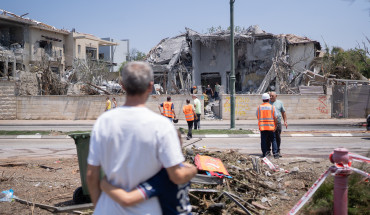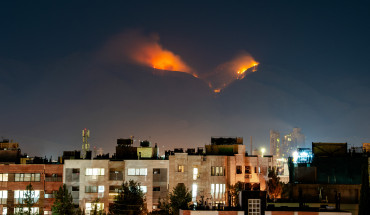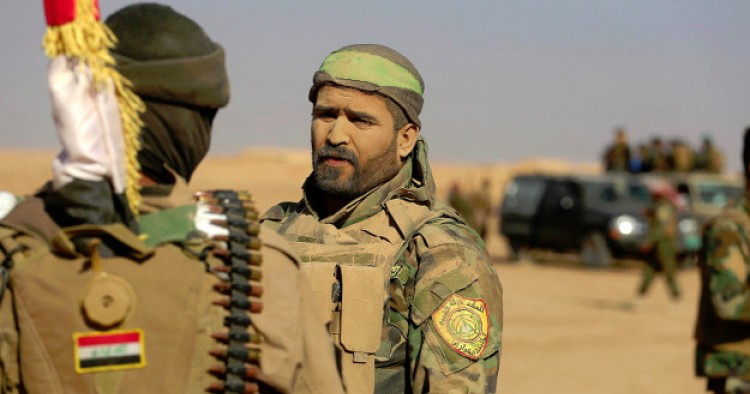Iraqi Vice President Ayad Allawi has revealed that a leader of the Iraqi Popular Mobilization Forces (P.M.F.) has traveled to Iran to discuss the issue of internally displaced people of the strategic town of Jurf Al Sakhar near Baghdad. According to Al Jazeera Arabic, Allawi said he had recently held meetings with P.M.F. leaders Hadi al-Amiri, the leader of the powerful Badr Organization, and Abu Mahdi Al-Muhandis, the deputy head and operational commander of the P.M.F., to discuss the potential repatriation of the displaced people of the region. But the vice president was reportedly told by one of the P.M.F. commanders that the decision lies in “Iran’s hands.”
Comment: Jurf Al Sakhar is a strategic town south of the Iraqi capital. After the Islamic State captured the Sunni region in 2014, the Iraqi security forces and Iranian-controlled Shiite Iraqi and Lebanese militia groups conducted an offensive and liberated the area later that year. Hadi al-Amiri, who has close ties with the Islamic Revolution Guards Corps (I.R.G.C.), reportedly led the military operation. Iranian Quds Force Commander Qassem Soleimani was also rumored to have participated in the offensive. About 120,000 inhabitants of the town were evacuated during the operation, but most have reportedly not been allowed to return.
The P.M.F. consists of militia forces largely from Shiite but also other Iraqi ethnic and religious groups. While some P.M.F. units are Iraqi nationalists and follow Iraq’s top cleric Grand Ayatollah Ali Sistani, many prominent groups within P.M.F. have close ties with Soleimani. What makes Iraqi Sunnis and regional Sunni governments particularly worried is that, despite P.M.F.’s diversity, it is the Iran-backed militia units within the P.M.F. – such as Asaib Ahl al-Haq, Kata’ib Hezbollah and the Badr Organization – that are playing the most prominent role in ongoing military operations against the Islamic State.
Although the P.M.F. is now legally integrated into the Iraqi security forces, some powerful P.M.F. leaders and groups, as the report suggests, still take their orders from Tehran rather than from Baghdad
The Middle East Institute (MEI) is an independent, non-partisan, non-for-profit, educational organization. It does not engage in advocacy and its scholars’ opinions are their own. MEI welcomes financial donations, but retains sole editorial control over its work and its publications reflect only the authors’ views. For a listing of MEI donors, please click here.













